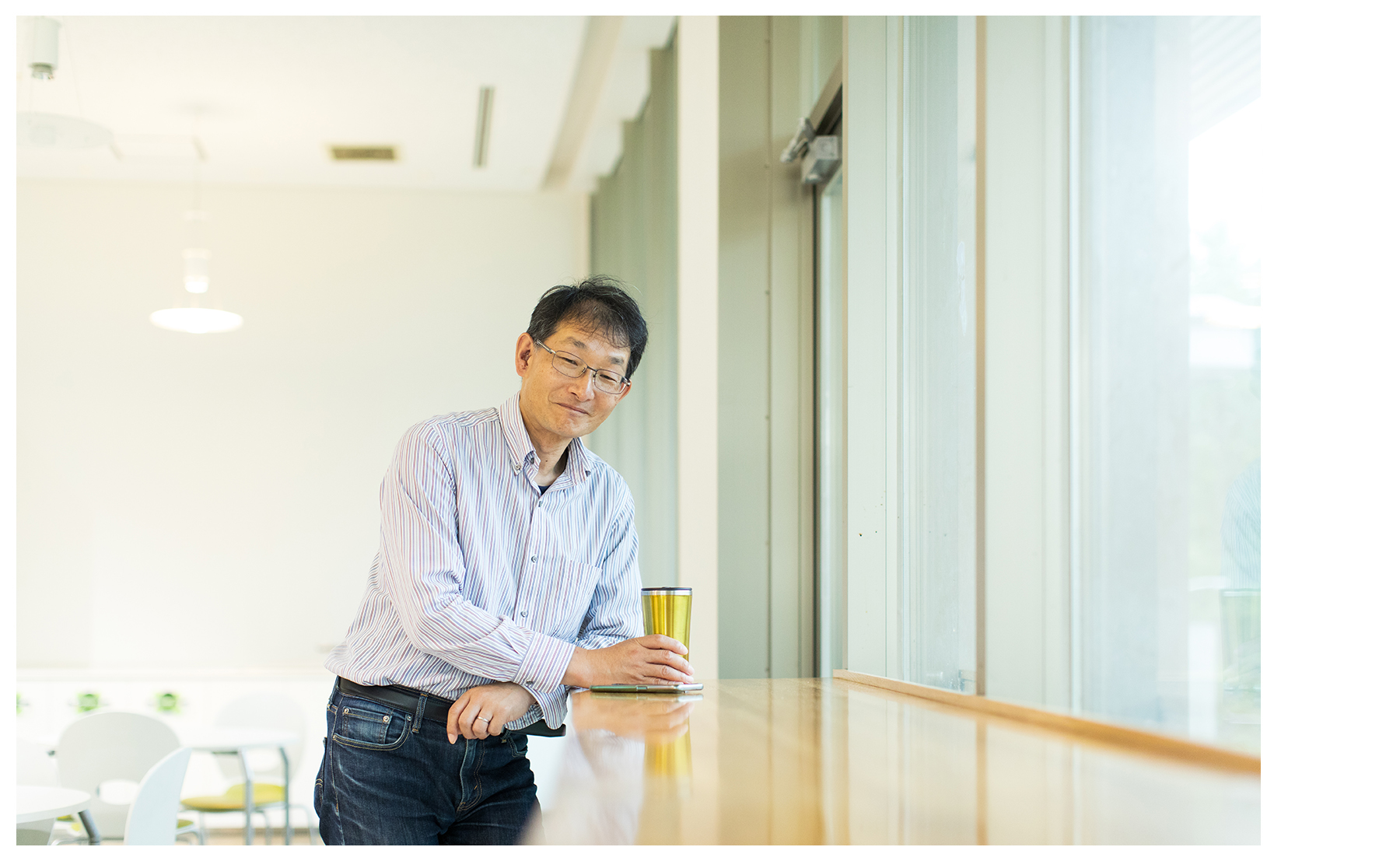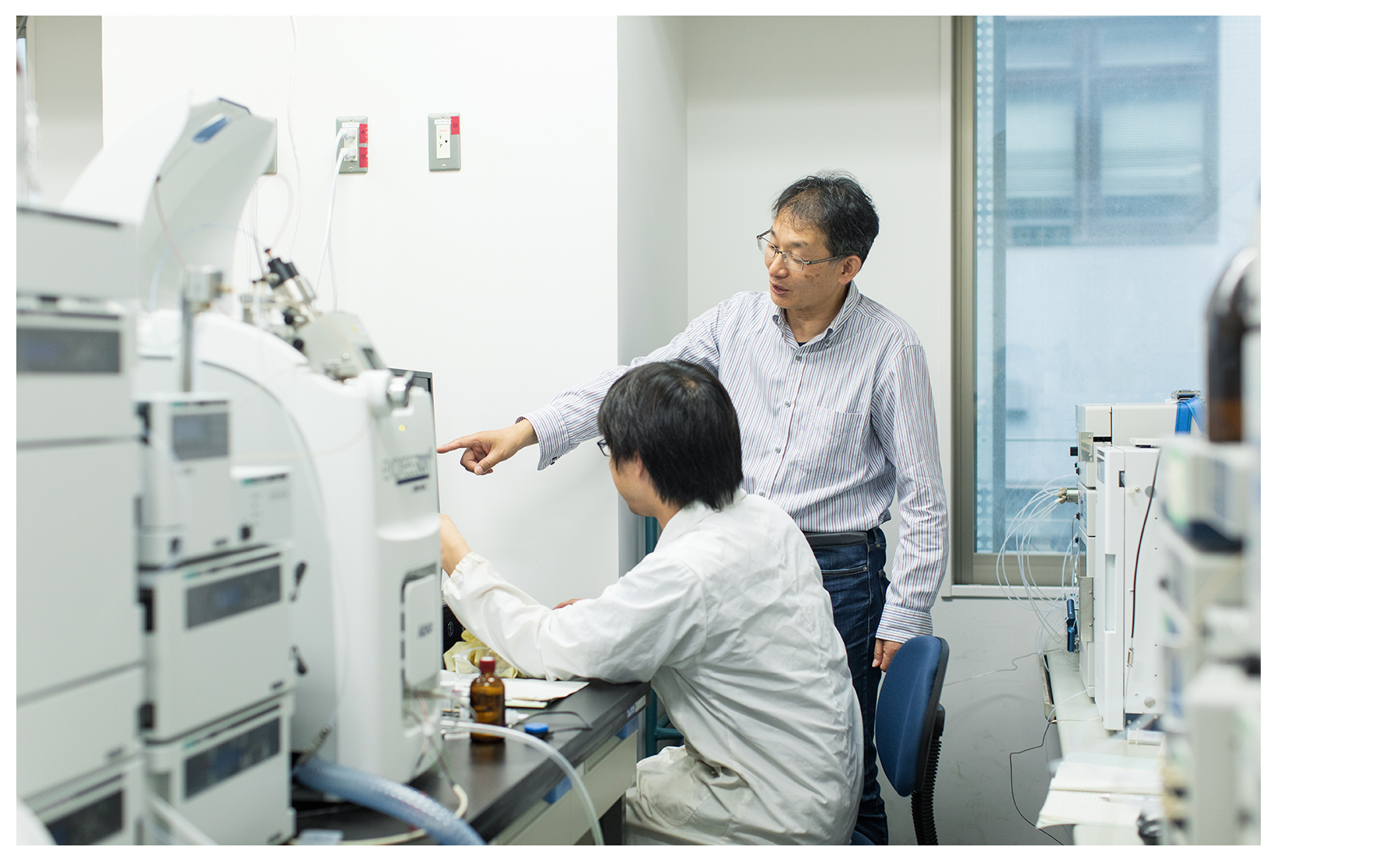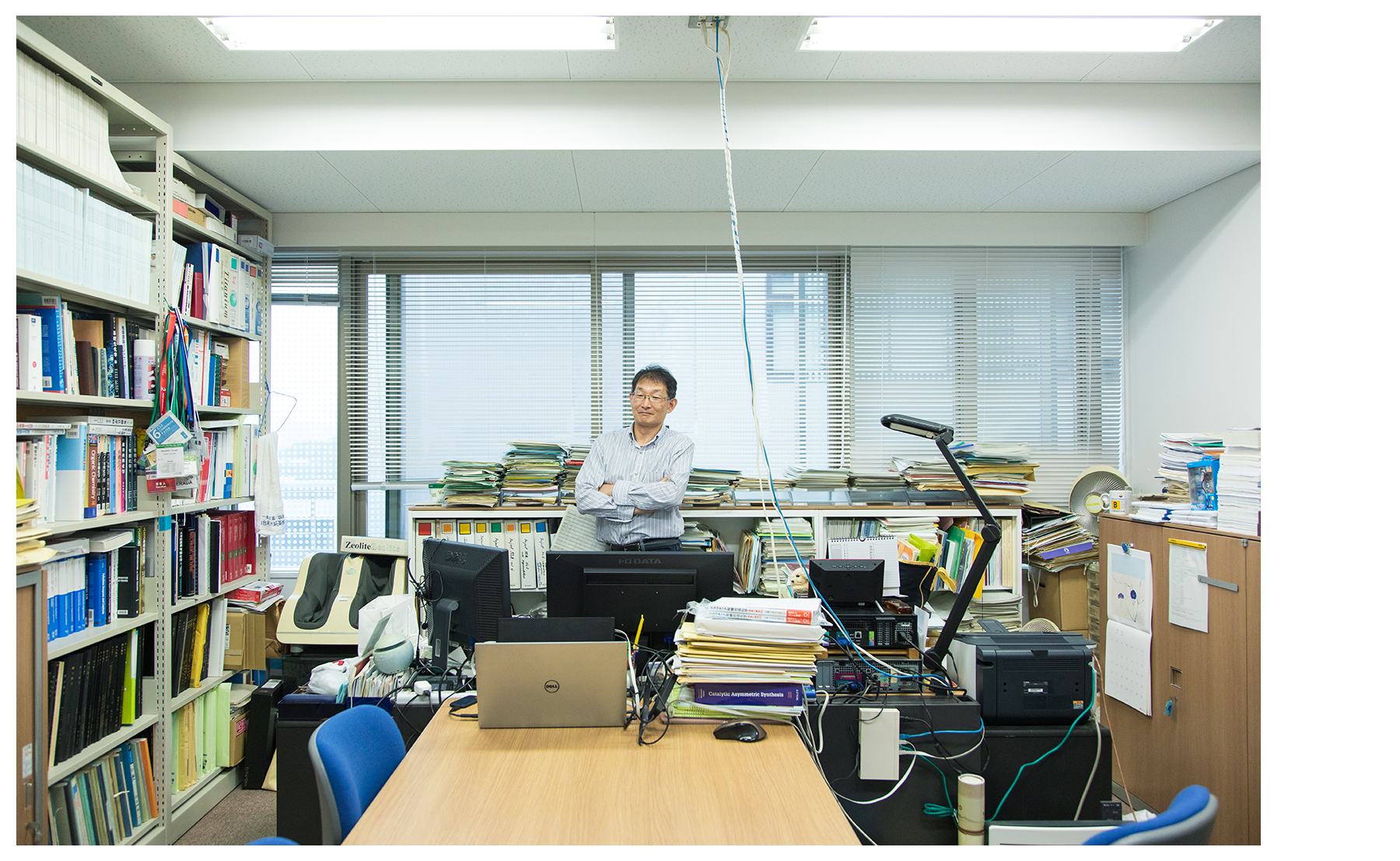As stated on the laboratory's website, "The origin of chemistry is manufacturing," we are working on the development of selective and efficient material conversion methods that make only what we want using "catalysts" as our main field, synthetic organic chemistry. Today's civilized society is made up of a variety of useful substances created by chemistry. For example, biologically active substances that exhibit medicinal properties, such as pharmaceuticals and pesticides, are indispensable for treating diseases and increasing the production of agricultural products. In many of these, it is now required to synthesize (asymmetric synthesis) only one enantiomer that exhibits the desired medicinal effect. In addition, there is a need for the creation of new molecules to further expand the chemical space (collection of molecules). In my laboratory, we are pursuing selectivity, versatility, and efficiency by uniquely designing next-generation molecular catalysts that take advantage of the properties of organic molecules and transition metal complexes, and we are aiming to develop new molecular transformations that respond to the creation of new molecular classes. We are cultivating research fields that lead to the creation of biologically active substances and functional substances by pioneering advanced molecular transformation processes that achieve low environmental impact and create new chemical spaces centered on catalyst design and reaction development.




- Name:Masahiro TERADA
- Position:Department of Chemistry, Professor
- Laboratory:Laboratory of Organic Reaction Processes
- Hometown:Tokyo Prefecture
- Favorite Books:I started climbing mountains about 8 years ago, and I've been reading Jiro Nitta's books. In addition, although it is not a content that I am interested in, I have contributed to the management of the university, and I have been reading books on the current state of scientific research and national universities in Japan. For example, " Lupo Collapse of University (by Keitaro Tanaka)", "National University Becoming a Privatization (edited by Takeshi Komagome)", and a book a while ago, "Who Kills Science: The Impact of the 'Collapse' of a Science and Technology Nation (Mainichi Shimbun Reporting Team)" and related books.
- Research area:Synthetic Organic Chemistry, Asymmetric Synthesis, and Catalyst Science
- Posted Date:Feb 29, 2024
1.What kind of the research are you doing?
2.What is the reason for starting your study?
When I was in the lower grades of elementary school, my father took me on a tour of an oil plant factory, and I was amazed at the scale of the plant, and I thought, "It's amazing that such a large factory can be built!" I became interested in it. The vivid memories of that time led to my desire to design a plant for a large-scale factory, and even when I went on to junior high and high school, it continued to follow me and greatly influenced my choice of school for university. At that time, I decided to go to the Tokyo Institute of Technology, which was famous for its research in chemical engineering, and I was able to pass the examination. However, the basics of chemical engineering, such as fluid dynamics, heat transfer, and drafting (plant design drawings), were too simple in the lectures on chemical engineering at university (I really apologize for the professors who taught me), and I became interested in organic chemistry, which was a specialized education that began in the first semester of my first year of university. Despite the fact that only a limited number of elements such as carbon, hydrogen, oxygen, and nitrogen are handled, organic chemistry has a variety of structures and a wide variety of reaction patterns, and it seemed wonderful and attractive that it even gives the illusion that each element can be cut and pasted at will. The lectures given by the professor I was teaching were interesting, so when I chose a laboratory, I was attracted to the charm of the professor. I have chosen a path that is quite different from the dream I had envisioned since I was a child, but as stated on the top screen of the laboratory's website, I am infinitely attracted to organic chemistry, which allows me to pursue "Change the World with Molecules Created by Yourself".
3.Message for prospective students
I would like to send the message on the basis of the researcher mindset, which has not changed in the past, "There is no creation where there is no failure." If you try something new that no one has tried before, it will not work out so easily. As any researcher has experienced, the majority of times what we want does not happen (= this is generally called "failure"). Failure occurs precisely because we have taken on new challenges, and in other words, "there is no creation where there is no challenge" may be more direct expression. However, I think that the opening sentence, " There is no creation where there is no failure" which clearly conveys the intention of "don't be afraid of failure," is more appropriate for the mindset that we researchers should have. If you run on a results-based approach, you tend to get involved in small things that will lead to immediate results "for fear of failure". As I impose that commandment on myself, I would like to dare to deliver this message to you. If you continue to challenge questions for which there are no answers prepared with your own energy and intellect " don't be afraid of failure," the results you achieve will be an irreplaceable asset for you. This is because the experience gained in the process will surely become your flesh and blood, and will lead to your own growth.

